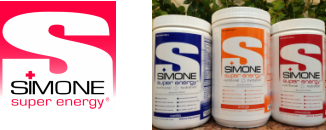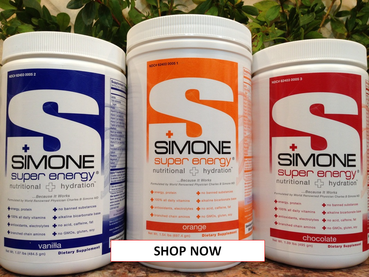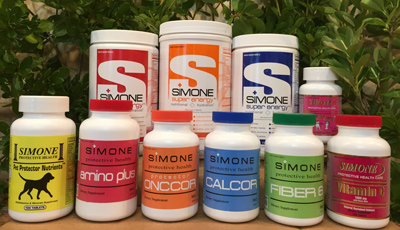1/24/16
We do not diagnose disease or recommend a dietary supplement for the treatment of disease. You should share this information with your physician who can determine what nutrition, disease and injury treatment regimen is best for you. You can search this site or the web for topics of interest that I may have written (use Dr Simone and topic).
“We provide truthful information without emotion or influence from the medical establishment, pharmaceutical industry, national organizations, special interest groups or government agencies.” Charles B Simone, M.MS., M.D.
PROTEIN – WHAT AMOUNT, WHAT SOURCE, WHAT COST – Excerpt from NUTRITIONAL HYDRATION (2007), C B Simone MD
Lawrenceville, NJ (Dr Simone) – It’s important to know what protein does for you, how much protein you actually need, and what the consequences are of eating too much protein. Consuming the correct amount of protein and from the proper source is healthier and less expensive than consuming fast food protein or less healthy protein sources.
-
Proteins are essential for cell shape and structure, antibodies, enzymes and hormones, for growth, and for the repair of the body. Proteins receive signals from outside the cell and direct activities inside the cell.
-
During exercise, when glycogen or glucose energy stores are low or depleted in the muscle, the body devours its own muscles and free amino acids are released that provide energy needed for contraction at the expense of the muscle
-
People at high altitude or in hot and cold temperature environments do not require any more dietary protein than the Recommended Dietary Allowance.
-
When a person consumes more protein than is needed, the body adapts to break down the excess. This presents a problem for military personnel who eat a lot of protein, then go on a mission where less protein is available, but who continue to metabolize protein at the same rate – higher than what should be for a temporary lower protein intake. Their muscle protein, that includes the heart, becomes the source of this metabolism.
-
When excess protein is consumed there is no place for it to be stored as there is for excess carbohydrates and fats that are stored as body fat. People do not become muscular simply because they eat lots of protein.
-
Excess protein intake causes:
-
-
Dehydration
-
Osteoporosis
-
Kidney stone formation and kidney dysfunction
-
Carbohydrate levels are compromised leading to poor performance
-
Liver dysfunction
-
Cancer and Cardiovascular Disease high risk because many high protein foods also have high fat.
The Need for High Amounts of Protein is a Myth for Most
Who needs to eat more protein? A combat soldier? An athlete? An elite athlete? An everyday person? Most people believe that soldiers and athletes require more dietary protein than sedentary people. However, the evidence to support this is weak. Bottom line – with few exceptions, most do not need more protein. But the myth that more protein is needed for better performance is difficult to dispel (The Role of Protein and Amino Acids in Sustaining and Enhancing Performance by the Committee on Military Nutrition Research, Institute of Medicine).
Current Recommendations for Dietary Protein For Most People – 0.8 grams of protein per kilogram of body weight per day The Food and Nutrition Board of the Institute of Medicine, National Academy of Sciences, National Research Council issues Recommended Dietary Allowances (RDA) for protein. The RDA for protein for a typical adult is 0.8 grams of protein per kilogram of body weight per day (Normal adult men and women, most athletes, soldiers not on assault missions). Americans weigh themselves and use pounds as the unit of measure. Most people in the rest of the world use kilograms. One pound of body weight converts to 2.2 kilograms. So, if you weigh 176 pounds, simply divide 176 by 2.2, and this equals 80 kilograms. Once you know your weight in kilograms, just multiply 0.8 grams of protein times 80 kilograms of body weight, and you find that the Recommended Dietary Allowances (RDA) for protein for you is 64 grams per day. Looking at the Table below, you can see that 86 grams of protein equals the volume of a deck of cards. So most people eat much more than a deck of cards worth of protein even though they require less.
The Committee on Military Research indicates that most soldiers require only the Recommended Dietary Allowances (RDA) for protein. The Committee further recommends that soldiers should not use protein supplements for muscle building.
Some Require More Protein Than the RDA – 1.2 to 1.5 grams of protein / kg of body weight per day
Some soldiers need more protein than the RDA. The Committee on Optimization of Nutrient Composition of Military Rations for Short-Term, High-Intensity Situations concludes that soldiers on assault missions have suppressed appetites and consume only 2,400 kcal per day but burn about 4,500 kcal per day. The body, therefore, devours its own muscle protein to use as energy. This results in muscle loss, fatigue, and decreased performance. Therefore, the Committee recommends that these soldiers increase their energy intake to meet the higher energy expenditure and also receive 1.2 – 1.5 grams of protein for each kilogram of body weight during the assault missions to prevent these protein losses and muscle loss, and to maintain immune and cognitive functions.
Controlled studies show that certain athletes also require more protein – 1.2 to 1.5 grams of protein for each kilogram of body weight. Endurance and strength athletes as well as athletes who suffer from injury or infections require this higher amount of protein. And athletes in some sports may be at risk for protein deficiency: gymnastics, endurance running (marathon, triathlon, cross-country), ultra-endurance, distance cycling, mountain climbing, wrestling, female figure skating, and dance.
Some Protein Foods Are Better Than Others
Protein foods from animals are called “complete” because they have all the essential amino acids you need to build new proteins. Essential amino acids include: L-Histidine, L-Lysine, L-Phenylalanine, L-Tyrosine, L-Threonine, L-Tryptophan, L-Methionine, and L-Cystine. However, fruits, vegetables, nuts and grains are called incomplete protein sources because they don’t have all the essential amino acids needed by you to make proteins for your body. Strict vegetarians, those who do not eat dairy products or fish, are at risk of not getting all the essential amino acids needed to build body proteins.
Choose protein foods that have the lowest fat content because fat slows your performance, increases your weight, and increases your future risk for cancer, cardiovascular disease, diabetes, and many other illnesses – the Table below. So, Avoid: 1) Four-legged animals, 2) Shellfish, 3) Dairy products unless it is skim or non-fat, and 4) Soy products (high fat, contain estrogen compounds that can increase the risk for cancer, interfere with testosterone needed for muscle strength).
So what do you have left – two-legged animals, swimming fish only from the ocean and not farm-raised, and everything that grows from the earth. The table below shows representative foods with their calorie, protein, fat and cholesterol content. Protein sources with lower cholesterol generally are lower in cost (http://www.comparegroceryprices.org/search/data/comparison.shtml).Choose wisely.
Are Protein Supplements Better Than Food?
No. Protein supplements are not better than the actual food source because they are derived directly from the foods and hence have not been digested into amino acids that could otherwise be ready to use by the body.
The three types of protein supplements commonly used are whey, casein, and soy. Milk’s protein content is comprised of 20 percent whey, and 80 percent casein. Soy comes from soybeans.
Whey contains all the amino acids, including the essential amino acids, as well as the highest amounts of the branched-chain amino acids (BCAA). Whey protein isolate is biologically the best form of whey (chemically obtained by selective elution) and the best choice for lactose-intolerant people. Whey absorbs into the bloodstream easily. Casein clots in the stomach and is therefore hard to digest and absorb.
Soy protein has all the amino acids but less of the BCAA, methionine, and lysine than whey. Whey and casein, compared to soy, can better increase strength, power, and lean mass. But no protein source is effective by itself unless carbohydrates accompany it. In addition, amino acids and carbohydrates must be taken just before or after weight training or endurance training to increase new proteins.
Intact protein supplements do not enhance performance, muscle size, or muscle strength compared to protein foods.
AMINO ACIDS Are Better Than Protein Supplements because amino acids are ready-to-use by the body whereas protein supplements first have to be digested into amino acids. Specific chemical forms of two amino acids increase the release of growth hormone to help muscle. 1200 mg L-Lysine hydrochloride together with 1200 mg L-Arginine-2-pyrrolidone-5-carboxylate (also known as L-Arginine-pyroglutamate) increase growth hormone from a baseline of 15 ug/ml to as much as 103 ug/ml at two hours.18 Glutamine could be used in place of pyroglutamate, so you could take L-lysine, L-arginine, and glutamine to effect the same outcome.19 Glutamine also stimulates the immune system.
During exercise and the first few hours of recovery, muscle protein synthesis and repair are suppressed. However, recovery occurs quickly by using a carbohydrate load, amino acids (BCAA and others), vitamins, electrolytes, and hydration.
(c) 2017 Charles B. Simone, M.MS., M.D.



